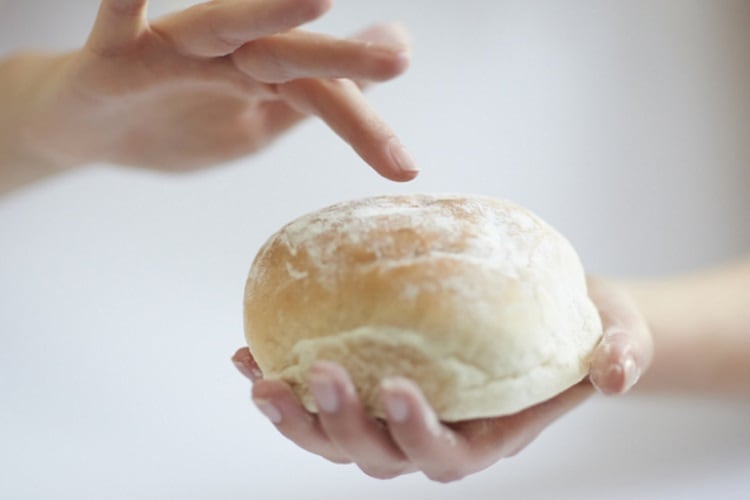According to FDF Scotland, recipe reformulation is one of the most effective ways industry can help to improve dietary health and combat the rising obesity pandemic. In fact, its Scottish Government-funded Reformulation push has removed hundreds of millions of calories and tonnes of salt from the Scottish diet to-date.
However, there’s still work to be done, so FDF Scotland is making it easier for local producers to jump on board with a grant to cover the costs of reformulating an existing product.
Up to £5,000 in funding will be awarded, which can be spent on anything from nutritional analysis to new equipment or external consultancy. Reformulation is unique to each product, but it must be based on at least one of FDF Scotland’s 8 principles of reformulation.

Case studies
The RCF has already awarded funding to 33 SME manufacturers to invest in reformulation, ranging from a lower-sodium salt to an ice cream that has fewer calories and sugars, an even healthier broccoli crisp and even a lower-fat version of haggis and black pudding.
Low sodium salt

148-year-old Peacock Salt is the largest and oldest distributor of salt products in the UK, producing salt for a range of purposes, including food production, water treatment and road de-icing.
In 2019, the Ayr-based company embarked on a project to develop a low-sodium salt that meets the 2024 Public Health England guidelines, without compromising a product’s taste, look and feel.
Working with University College Dublin, the company trialled numerous sodium alternatives – like potassium, magnesium, seaweed and malt extract – that would meet cost, stability, taste and texture. The team settled on a blend of sodium, potassium and magnesium, but learnt it had to be the same grain size as the sodium chloride.
The next stage was sensory testing, made possible by a £5,000 grant from the RCF in 2021. Detailed sensory testing with Queen Margaret University (QMU) in Edinburgh ‘road tested’ two reduced-sodium formulations, using them in some of Scotland’s much loved foods, like oatcakes, pastry, smoked salmon and cheese.
Reaction, although highly positive, was varied and Peacock realised that there’s no one-size-fits-all product: sodium reduction is industry-dependant and product-dependant.
To cater for this, it now produces three ‘off-the-shelf’ blends, providing a 20%, 30% and 40% reduction in sodium.
Reformulating to reach new stockists and reduce VAT

Growers Garden is a farmers’ collective in Fife that uses veggies considered too big or small for supermarket for crisps that are gluten-free, vegan-friendly, high-fibre and low-calorie.
While its broccoli crisps have always been healthy – containing at least 27% fresh broccoli – the company wanted to expand market opportunities.
The first task was to slash the salt content of its crisps – from 2.1% to 1.5%, in order to meet the ‘healthyliving’ criteria adopted by many food operators, like bakery/coffee shops, gyms, cafes, etc.
The second task was to reduce potato content to sell make the price more attractive to consumers and therefore stockists. Potato-based snacks are subject to VAT at 20%, while many other savoury snacks have zero VAT.
The company’s reformulation journey involved researching ingredients (salt alternatives, pre-gelatinised cornflour to replace the potato flavour), small product runs, sensory testing and finally, independent nutritional confirmation, all with the backing from the RCF.
According to Growers Garden, there’s a great market opportunity out there that it is now well placed to capture, and its experience will be extended to the extruded snacks it produces for other brands.
Enriched morning roll

Tower Bakery in Abernethy was contacted by Stirling Council to develop a high-fibre white morning roll that conformed to the New Nutritional Requirements for Schools Regulations in force in Scotland.
The 40-year-old bakery boasts a number of awards, and is a supplier for local authorities and retailers, along with its own retail outlets. The reformulation process is also not new to the business, which tailors orders to meet client specifications.
Tower admits the processes typically requires just small amendments, however, many do incur additional costs, so approached FDF Scotland for funding through RCF.
A great deal of research was involved to identify and source higher fibre flours and powdered fibres, and then to trial and tweak recipes to fine tune fibre content without compromising the appearance of the roll.
The original recipe morning roll made with wheat flour contains 2.1g fibre per 100g product, while the higher fibre option doubles that, at 4.3g per 100g.
Interested?
If you have an existing product that is on track to face the reformulation journey, you can apply for the RCF.
The Reformul8 Challenge Fund ranges from £250 to £5,00.
Applicants must provide at least 50% of the total project costs (businesses may contribute more than 50%, but the maximum remains at £5,000).
Funding is provided by Scotland Food and Drink Partnership Recovery Plan.
Applications are open until 2 December.





